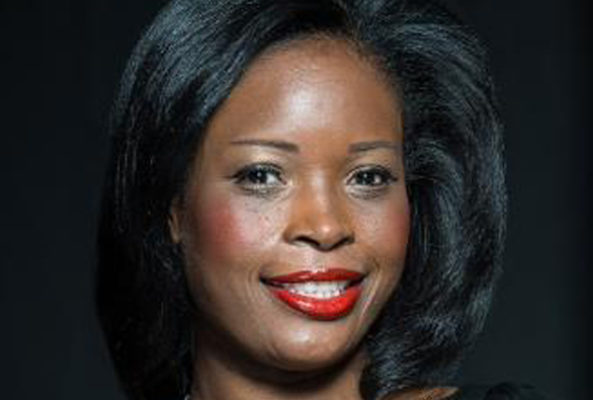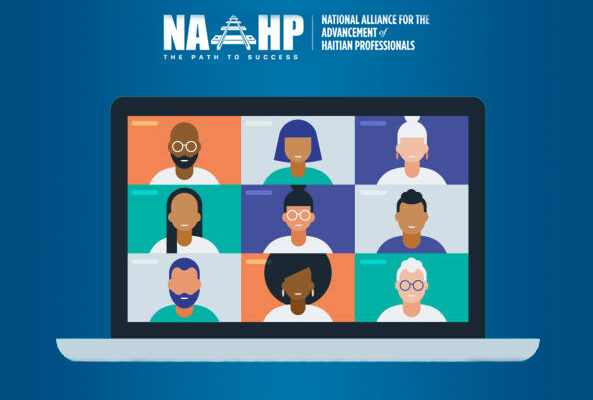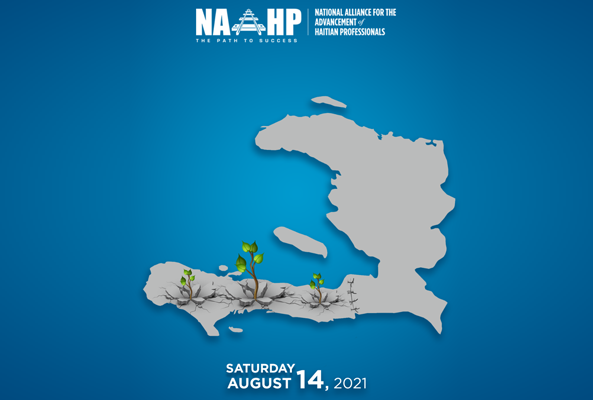
Professional Spotlight on Dr. Nadege Dady
Each week the NAAHP highlights individuals who are making a difference in their communities. Dr. Nadege Dady serves as the Dean of Student Affairs & Assistant Professor, Touro College of Osteopathic Medicine. As the Dean of Student Affairs, she provides oversight and management of the Admissions, Registrar, Financial Aid, and Bursar offices as well as aspects of student life and activities on the college campus.
Dr. Dady joined the Touro family from the Rutgers School of Dental Medicine where she served as the Director of Educational Programs in the Office of Academic Affairs. Prior to working at Rutgers, Dr. Nadege Dady also served as the Regional Director for the New York City Metropolitan Area Health Education Centers (AHEC) and Director for the Family Medicine Education program at the Institute for Urban Family Health, NYC.
You can read Dr. Dady’s full bio at naahpconference.org.
10 Questions for Dr. Nadege Dady
Dominique Elkind, NAAHP: Tell us a bit about your personal background.
Nadege Dady: I was born and raised in Brooklyn, NY. I attended Hunter College, NY and graduated with a Bachelor of Arts. I later attended Fordham University where I obtained a Master’s degree in Psychology and Education, followed by a doctorate degree in Higher Education & Leadership from Seton Hall University. I currently reside in New Jersey and serve as the Dean of Student Affairs for the Touro College of Osteopathic Medicine New York’s Harlem Campus.
NAAHP: Who or what inspired you to become a doctor?
ND: I was encouraged to pursue my doctorate by my colleagues. I have always worked in Higher Education, Healthcare Administration and was developing some core experiences in the areas of admissions, minority recruitment, and academic affairs. My colleagues recognized that I enjoyed the work I was doing and perceived that obtaining a doctorate degree would open more professional doors for me in academia. They were right; I am forever grateful for their encouragement and am very happy that I decided to pursue this path.
NAAHP: What is the most important leadership lesson that you’ve learned?
ND: There are many leadership lessons to learn, but the one I believe has been the most impactful in my career is being a good listener. It is a very effective tool for understanding the perspective of the speaker, customer, student, faculty member, etc. If you have listened well and fully comprehended the issues, the solutions arrive quicker and the implementation or change initiative is much easier to accomplish.
NAAHP: How do you prioritize your time and what do you focus on?
ND: My work generally involves and affects others; such as enrolled students, undergraduate students applying to our medical school, alumni, faculty &/or staff. In order for work to flow smoothly, it is important to ensure that policies and procedures are fair, meets organizational standards, and are achievable. To accomplish this goal I prioritize my time listening to others, understanding their concerns, and testing the effectiveness of potential organizational change on outcomes. This happens at any time during the day and in whatever format best serves the situation – at planned organizational meetings, unplanned meetings in a study room, in the hallway over coffee or in someone’s private office.
NAAHP: What is the biggest challenge of your work?
ND: When your work involves many others it is not possible to please everyone all of the time.
NAAHP: What is the most rewarding part of your work?
ND: Playing a role in creating more opportunities for underrepresented minorities to pursue a career in medicine.
NAAHP: What are your personal or professional journey highlights thus far?
ND: Assuming the role of Dean of Student Affairs has been extremely rewarding thus far. Although I joined the organization with experience in developing pipeline programs and preparing underrepresented minorities for a career in medicine; in this role I oversee the admissions process. This affords me great flexibility to pursue collaborative partnerships that increase our ability to identify more qualified underrepresented minorities who want to pursue a career in medicine.
Another aspect of this important work is continuing to nurture creative programs that facilitate exposing underrepresented minority students in high school and college to our school’s mission, campuses, and our students. A few of those efforts include MedAchieve; a mentorship program between our medical students and Harlem based high school students; COMPASS, a medical student interest group which stands for Creating Osteopathic Minority Physicians who Achieve Scholastic Success. Both programs utilize the talent of our current students to connect with students at a younger age who are looking for guidance, inspiration or mentorship.
NAAHP: What kind of advice would you give to a student in your field?
ND: A student interested in Higher Education should spend time exploring their particular area of interest. Examples of focus areas include Teaching, Program development, Program evaluation, or Administration/Leadership. To jumpstart a potential career in Higher Education, I would also suggest pursuing opportunities to work in the field in order to become familiar with the professional environment and gain valuable marketable experience. Once a student has identified an area of interest, the next step is to research growth opportunities, skills needed, academic degree(s) required, as well as challenges associated with that particular area of interest.
NAAHP: Do you have specific advice for women interested in building their leadership skills?
ND: Women interested in building their leadership skills should dedicate every year toward learning at least two new leadership skills in an area of interest. This might involve investing in formal training and/or dedicated time toward reading self-help books or researching a particular topic.
If a person does not know where to start, I would suggest beginning with developing your listening, presentation, and business professional writing skills. There are a variety of resources available now, which makes access more easily achievable than in years past.
NAAHP: When you are not at work, where can we find you?
ND: Getting together socially (for music, art or cultural activities) with friends and family, exercising, writing, attending networking functions with colleagues and friends, or traveling.

 English
English Français
Français Donate
Donate Partner
Partner Shop
Shop Login
Login






